LIVRES - THEME : BUSINESS & ECONOMICS,Accounting,Financial
LIVRES - THEME : BUSINESS & ECONOMICS,Accounting,Financial
IMAGE_LINK LINK TITLE DESCRIPTION PRODUCT_TYPE

Fraud 101 Unique insights into the nature of fraud and how to expose it It's not enough to wait for a tip to expose corporate fraud. Fraud 101, Second Edition provides step-by-step guidance on how to perform detection procedures for every major type of fraud. Its new and detailed case studies reveal how easy it can be for a perpetrator to commit a fraud and how difficult it can be to prosecute. This new edition also offers expanded coverage of financial statement fraud, fraud-specific internal control, and Sarbanes-Oxley. BUSINESS & ECONOMICS,Accounting,Financial
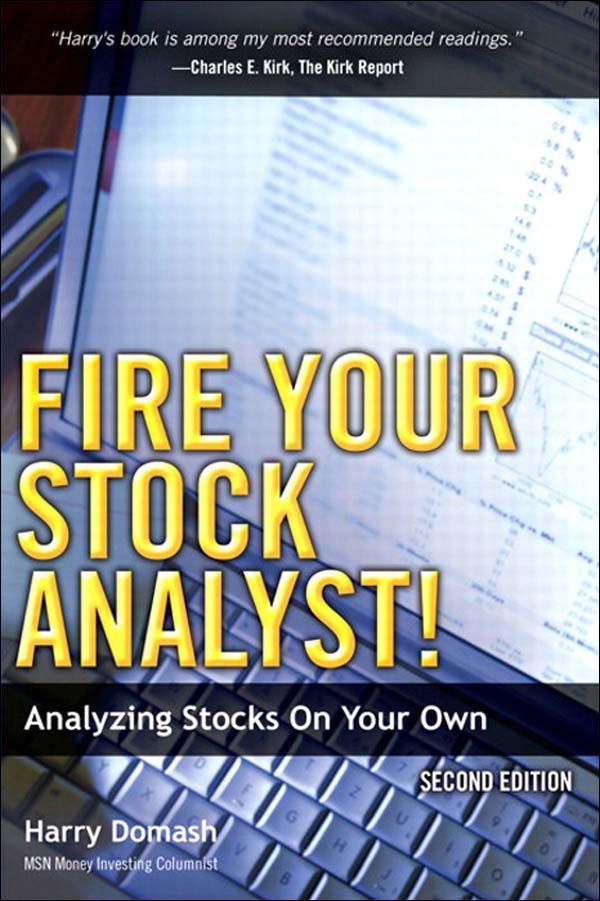
Fire Your Stock Analyst! The #1 Guide to Do-It-Yourself Stock Analysis– Now Fully Updated with Powerful New Shortcuts! “Harry’s book is among my most recommended readings because it provides a step-by-step process that enables any investor to analyze potential investment opportunities and ultimately become a much better investor.†– Charles E. Kirk, The Kirk Report “This is a thoughtful book that will stir the imagination and whet the appetite of anyone considering investing in stocks. It will serve as a foundation for lifelong education in how to improve your wealth.†– Victor Niederhoffer, Chief Speculator, Manchester Investments, and author of the best-selling Education of a Speculator “This book is sensible, balances risks with rewards, has a lot of real-world practical examples carefully worked out, and a lot of tangible parameters. This is the book I wish I had time to write.†– David Edwards, President, Heron Capital Management, Inc. “Fire Your Stock Analyst! grabbed my attention early and held it to the very end. This is a good book if you are interested in being your own stock guru or just getting started in common stock investment analysis.†– Nicholas D. Gerber, Portfolio Manager, Ameristock Funds “A refreshing antidote to run-of-the-mill investing ‘how-tos.’ The net result is an insightful and useful treatise on investing that works for both growth and value plays.†– Charles Mulford, Invesco Chair and Professor of Accounting, Georgia Institute of Technology, and coauthor of The Financial Numbers Game: Detecting Creative Accounting Practices “Fire Your Stock Analyst! offers honest and up-to-the minute advice and guidance on the investment-research process. Domash offers up a great combination of textbook knowledge backed by real-world examples.†– Richard H. Driehaus, Driehaus Capital Management, Inc. “Fire Your Stock Analyst! provides well-thought-out, sensible, step-by-step strategies for analyzing stocks, including when to sell. These analytical methods, used by pros though rarely explained to individual investors, will help you improve your results in the market right away.†– Jon D. Markman, Senior Investment Strategist and Portfolio Manager, Pinnacle Investment Advisors BUSINESS & ECONOMICS,Accounting,Financial
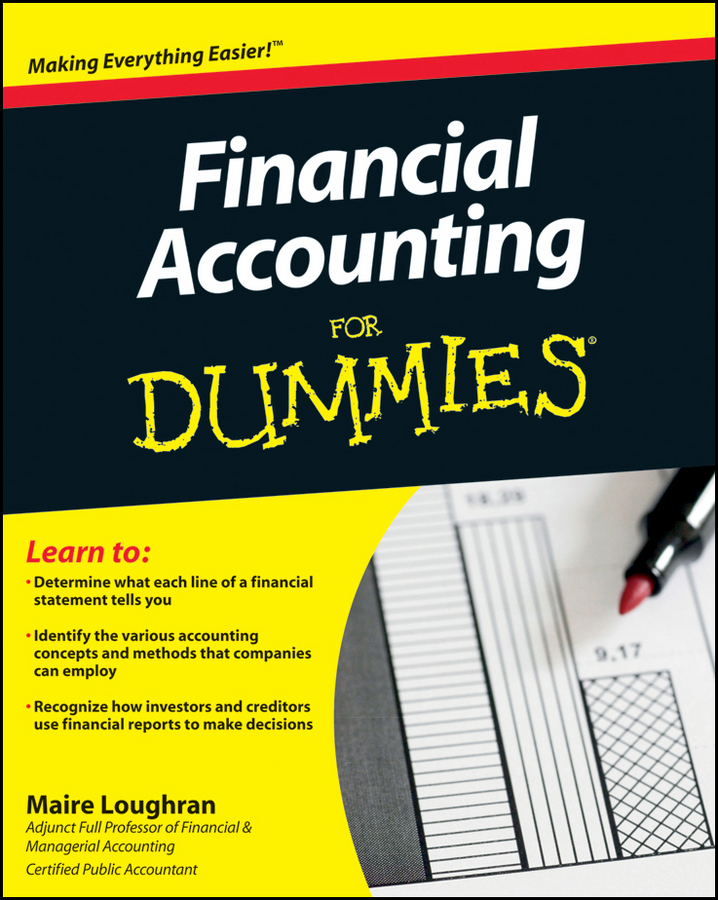
Financial Accounting For Dummies Your plain-English guide to navigating a financial accounting course Despite the economic landscape and job market, demand for accountants remains strong, and accountants will continue to see high demand for their services as the economy rebounds and businesses grow. Additionally, one of the effects of the economic downturn is a greater emphasis on accountability, transparency, and controls in financial reporting. With easy-to-understand explanations and real-life examples, Financial Accounting For Dummies provides students who are studying business, finance, and accounting with the basic concepts, terminology, and methods to interpret, analyze, and evaluate actual corporate financial statements. Covers traditional introductory financial accounting course material Explores concepts accountants and other business professionals use to prepare reports Details mergers and acquisitions purchase and pooling, free cash flow, and financial statement analysis Whether you're a student on your way to earning a bachelor's degree, MBA, or MAcc, Financial Accounting For Dummies gives you a wealth of information to grasp the subject and ace the course. BUSINESS & ECONOMICS,Accounting,Financial

Corporate Governance A fresh look at the commonly accepted view of what constitutes good governance, based on examples from Europe, North America and Asia. BUSINESS & ECONOMICS,Accounting,Financial
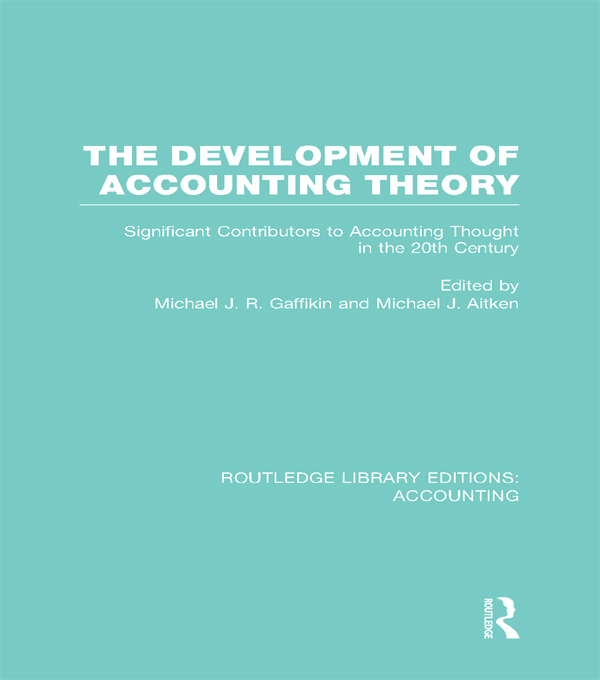
The Development of Accounting Theory (RLE Accounting) This book is a resource book for the comprehensive study of the development of accounting thought. It is designed to facilitate the study of the original works and stimulate further study of important accounting theory forbears. It covers: accounting theory accounting concepts of profit financial accounting and the foundations of accounting measurement accounting evaluation and economic behaviour. BUSINESS & ECONOMICS,Accounting,Financial
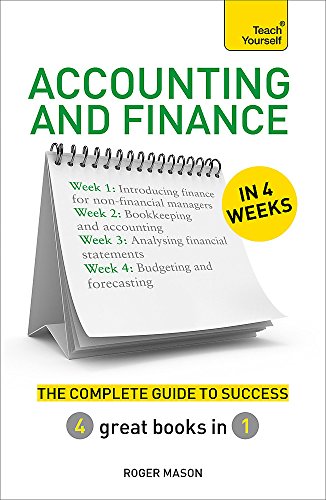
Accounting & Finance in 4 Weeks Accounting And Finance In 4 Weeks is a comprehensive guide to understanding finance, giving you everything you need to know in one place. Made up of four bestselling books in one, this book delivers a complete course in the essentials. From balance sheets and profit statements to cashflow, budgets and forecasts you'll discover all the tools, techniques and strategies you need to get up to speed. This book introduces you to the main themes and ideas of finance and accounting, giving you a knowledge and understanding of the key concepts, together with practical and thought-provoking exercises. Whether you choose to work through it like a 4 week course or dip in and out, Accounting And Finance In 4 Weeks is your fastest route to success: Week 1: Finance For Non-Financial Managers In A WeekWeek 2: Bookkeeping And Accounting In A WeekWeek 3: Understanding And Interpreting Accounts In A WeekWeek 4: Successful Budgeting And Forecasting In A Week ABOUT THE SERIES In A Week books are for managers, leaders, and business executives who want to succeed at work. From negotiating and content marketing to finance and social media, the In A Week series covers the business topics that really matter and that will help you make a difference today. Written in straightforward English, each book is structured as a seven-day course so that with just a little work each day, you will quickly master the subject. In a fast-changing world, this series enables readers not just to get up to speed, but to get ahead. BUSINESS & ECONOMICS,Accounting,Financial

Financial, Commercial, and Mortgage Mathematics and Their Applications, 2nd Edition An updated and expanded version of the time-honored classic text on financial math, this book provides, in one place, a complete and practical treatment of the four primary venues for finance: commercial lending, financial formulas, mortgage lending, and resource allocation or capital budgeting techniques. With an emphasis on understanding the principles involved rather than blind reliance on formulas, the book provides rigorous and thorough explanations of the mathematical calculations used in determining the time value of money, valuation of loans by commercial banks, valuation of mortgages, and the cost of capital and capital budgeting techniques for single as well as mutually exclusive projects. This new edition devotes an entire chapter to a method of evaluating mutually exclusive projects without resorting to any imposed conditions. Two chapters not found in the previous edition address special topics in finance, including a novel and innovative way to approach amortization tables and the time value of money for cash flows when they increase geometrically or arithmetically. This new edition also features helpful how-to sections on Excel applications at the end of each appropriate chapter. BUSINESS & ECONOMICS,Accounting,Financial
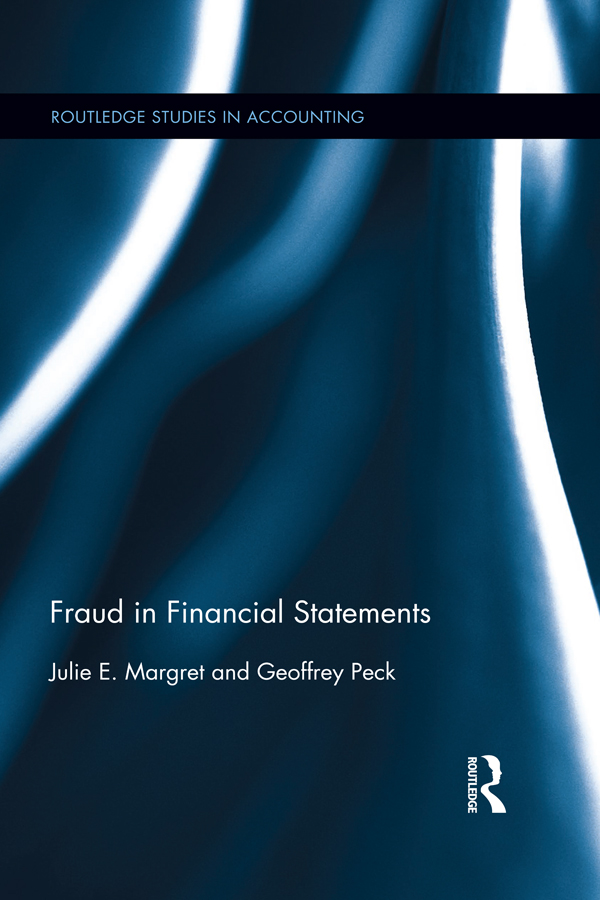
Fraud in Financial Statements As the monetary cost of fraud escalates globally, and the ensuing confidence in financial markets deteriorates, the international demand for quality in financial statements intensifies. But what constitutes quality in financial statements? This book examines financial statement fraud, a topical and increasingly challenging area for financial accounting, business, and the law. Evidence shows that accounting anomalies in an organization’s financial statements diminish the quality and serviceability of financial information. However, an anomaly does not necessarily signal fraud. Financial statement fraud is intended to mislead shareholders and other stakeholders. In this book, elements that underpin diversity of accounting anomalies likely found in fraudulent financial accounting statements are revealed. Multiple research methods are used in the analysis of selected international fraud cases, each illustrating examples of financial statement fraud, including: revenue recognition, overstatement and/or misappropriation of assets, understatement of expenses and liabilities, disclosure fraud, bribery and corruption. Additionally, the phoenix phenomenon with regard to fraud in financial accounting is investigated. Drawing on documented observations of commercial and legal cases globally this study highlights the necessity for continued development of financial audit practices and other audit services. BUSINESS & ECONOMICS,Accounting,Financial
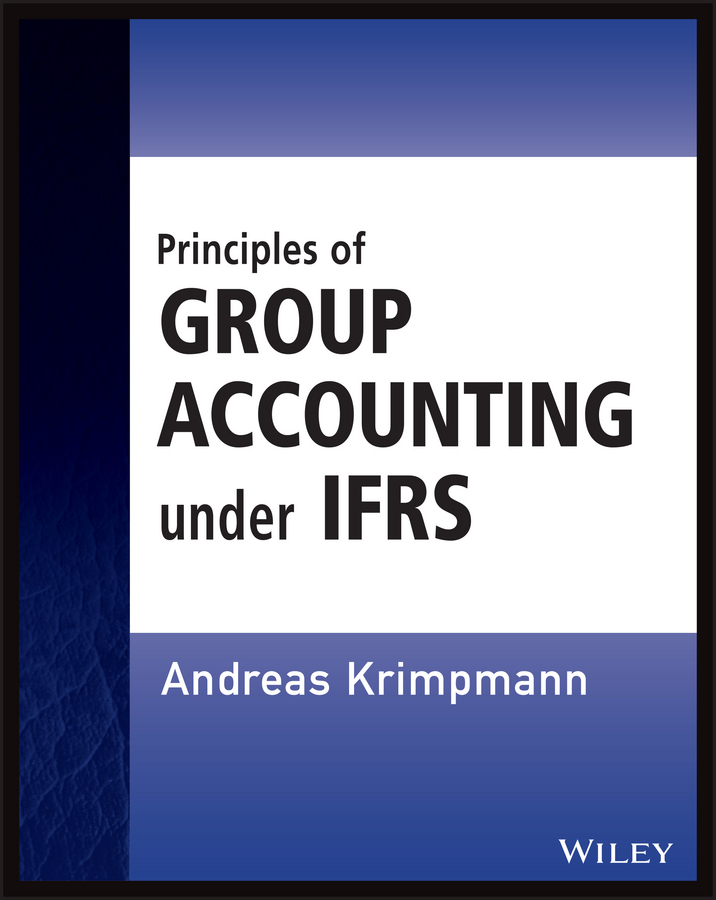
Principles of Group Accounting under IFRS A professional perspective to implementing IFRS 10, 11, and 12 The new International Financial Reporting Standards (IFRS) 10, 11, and 12 are changing group accounting for many businesses. As business becomes increasingly global, more and more firms will need to transition using the codes and techniques described in Principles of Group Accounting under IFRS. This book is a practical guide and reference to the standards related to consolidated financial statements, joint arrangements, and disclosure of interests. Fully illustrated with a step-by-step case study, Principles of Group Accounting under IFRS is equally valuable as an introductory text and as a reference for addressing specific issues that may arise in the process of consolidating group accounts. The new international standards will bring about significant changes in group reporting, and it is essential for accountants, auditors, and business leaders to understand their implications. Author Andreas Krimpmann is an internationally recognized authority on the transition from GAAP to IFRS, and this new text comes packaged with GAAP/IFRS comparison resources that will help make the changes clear. Other bonus resources include an Excel-based consolidation tool, checklists, and a companion website with the latest information. Learn about: Definitions, requirements, processes, and transition techniques for IFRS 10, 11, and 12 covering group level accounting Practical implementation strategies demonstrated through a clear case study of a midsize group Key concepts related to consolidated financial statements, joint ventures, management consolidation, and disclosure of interests Comparisons between GAAP and IFRS to clarify the required changes for international firms Whatever stage of the consolidation process you are in, you will appreciate the professional perspective in Principles of Group Accounting under IFRS. BUSINESS & ECONOMICS,Accounting,Financial
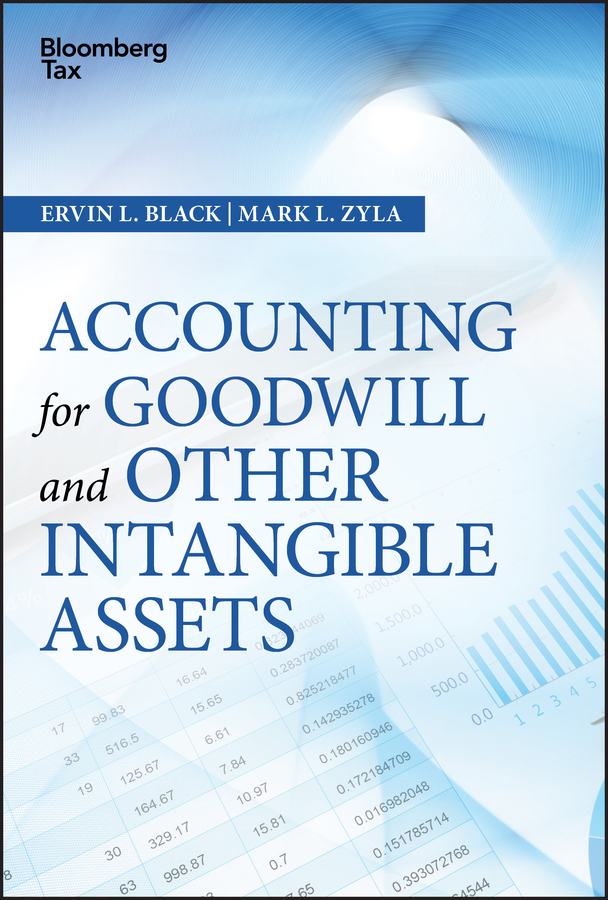
Accounting for Goodwill and Other Intangible Assets Concepts, methods, and issues in calculating the fair value of intangibles Accounting for Goodwill and Other Intangible Assets is a guide to one of the most challenging aspects of business valuation. Not only must executives and valuation professionals understand the complicated set of rules and practices that pertain to intangibles, they must also be able to recognize when to apply them. Inside, readers will find these many complexities clarified. Additionally, this book assists professionals in overcoming the difficulties of intangible asset accounting, such as the lack of market quotes and the conflicts among various valuation methodologies. Even the rarest and most problematic situations are treated in detail in Accounting for Goodwill and Other Intangible Assets. For example, the authors analyze principles for identifying finite intangible assets and appropriately accounting for amortization expenses or impairment losses. Using the information in this book, the results of these calculations can also be reported with precision on financial statements. These topics are especially important for ensuring the success of any asset acquisition or business combination. In these special cases, the utmost accuracy is essential. This book provides: Rules for identifying and recognizing intangible assets in business combinations and asset acquisitions Guidance on the accurate valuation and carrying amount calculation of acquired and self-created intangibles Tips for overcoming the challenges unique to intangible assets, including impairment testing Clear instructions for disclosing intangible assets, goodwill, and amortization expenses Accounting for Goodwill and Other Intangible Assets is an indispensable reference for valuation students and specialists. Ervin L. Black and Mark L. Zyla provide thorough instructions for understanding, accounting for, and reporting this challenging asset class. BUSINESS & ECONOMICS,Accounting,Financial
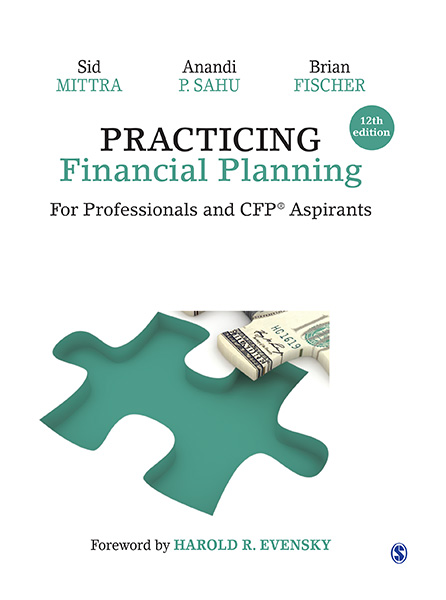
Practicing Financial Planning A comprehensive text for CFP® aspirants and a must-have companion for financial planners. BUSINESS & ECONOMICS,Accounting,Financial
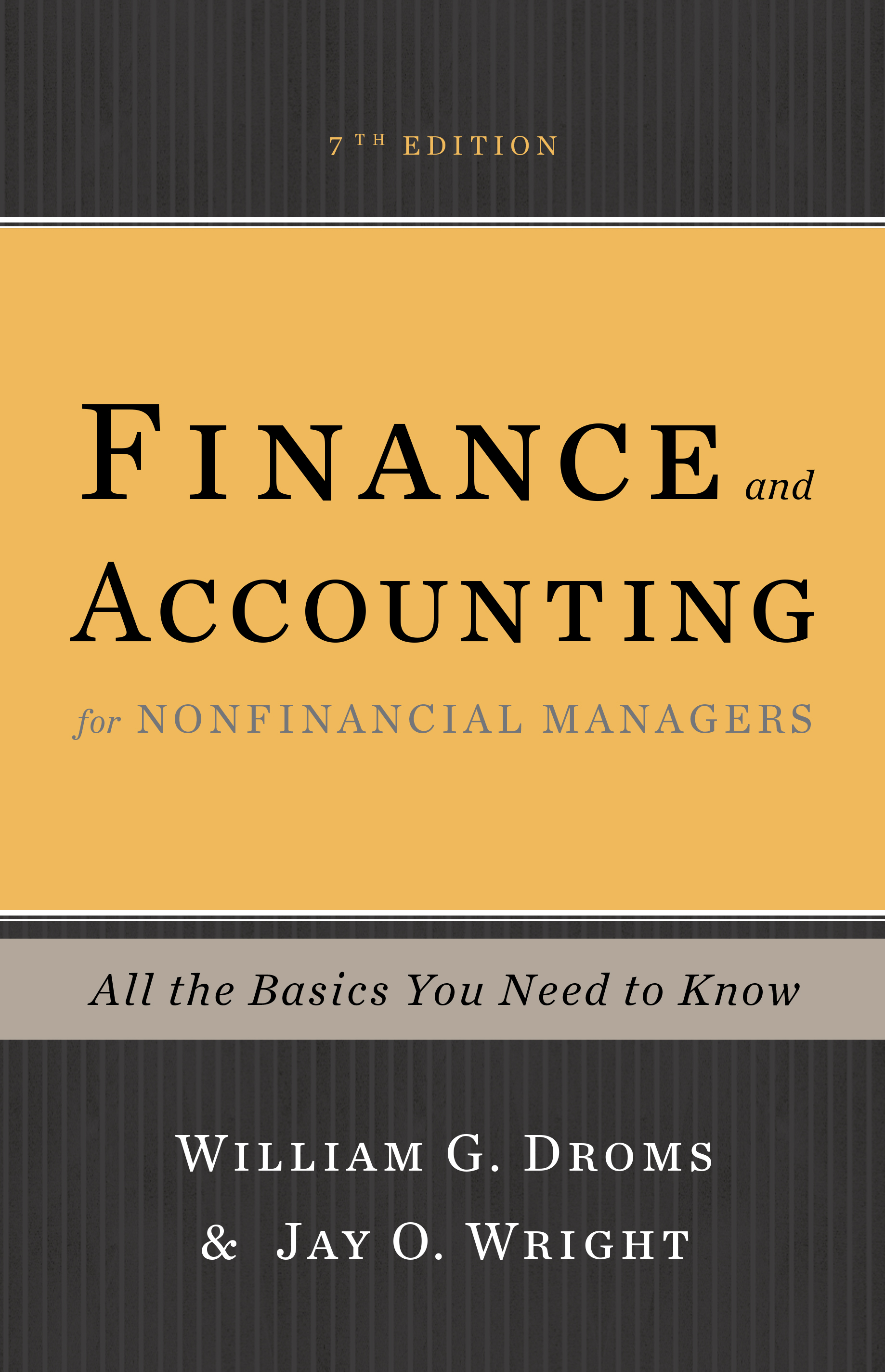
Finance and Accounting for Nonfinancial Managers In the current environment of cut-throat competition, razor-thin profit margins, and increasing scrutiny from stakeholders, mastering the fundamentals of financial management is a must for everyone with a stake in their companies and in their own professional futures. Packed with step-by-step examples and illustrative case studies, and updated to reflect the latest trends in the economy and in financial policy, Finance and Accounting for Nonfinancial Managers is a nuts-and-bolts guide for managers, entrepreneurs, seasoned executives, teachers, and students alike. Featuring new commentary on corporate accountability, updated interactive templates, study questions, and an online instructor's guide, this new edition covers all the key aspects of financial management. BUSINESS & ECONOMICS,Accounting,Financial
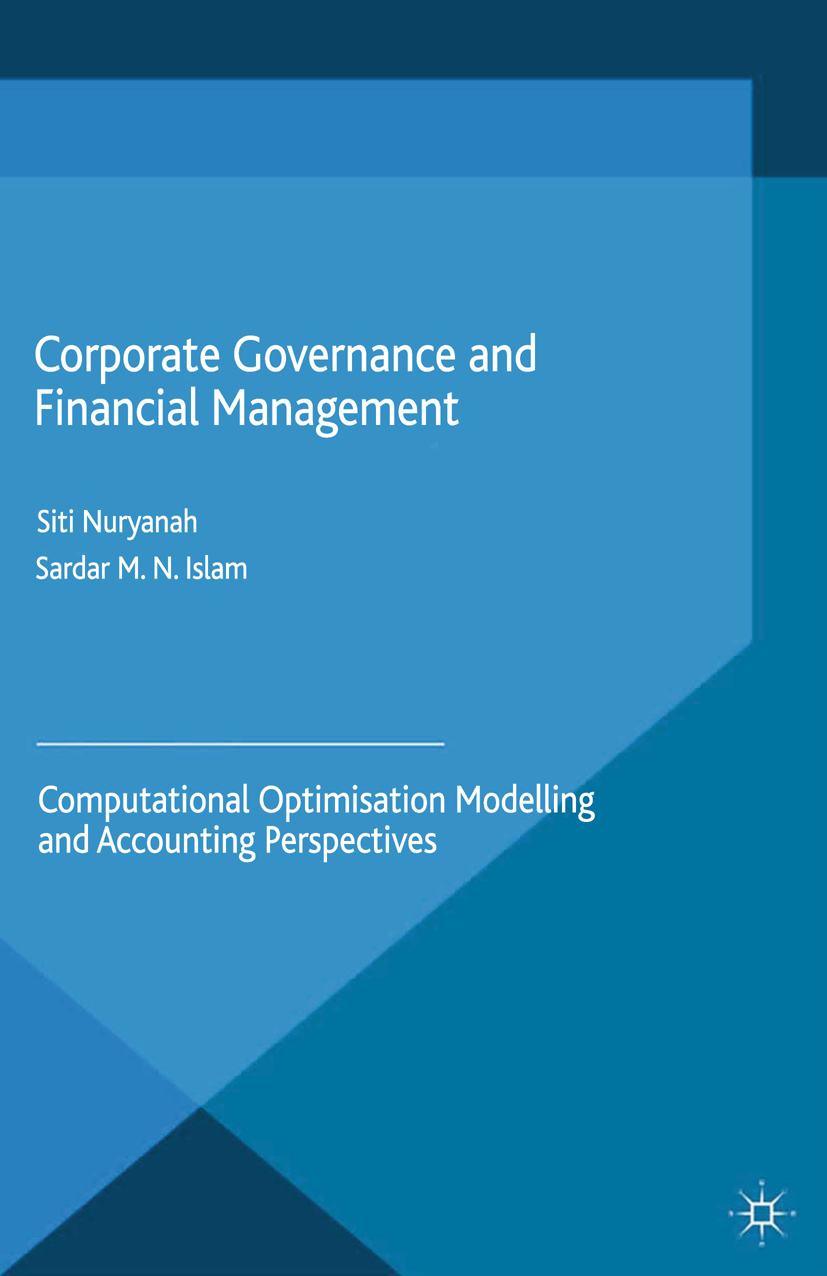
Corporate Governance and Financial Management This book integrates corporate governance, corporate finance and accounting to formulate sound financial management strategies. It offers practical steps for managers using an integrated optimisation financial model to achieve good corporate governance practices which lead to lower risks and higher firm value. BUSINESS & ECONOMICS,Accounting,Financial
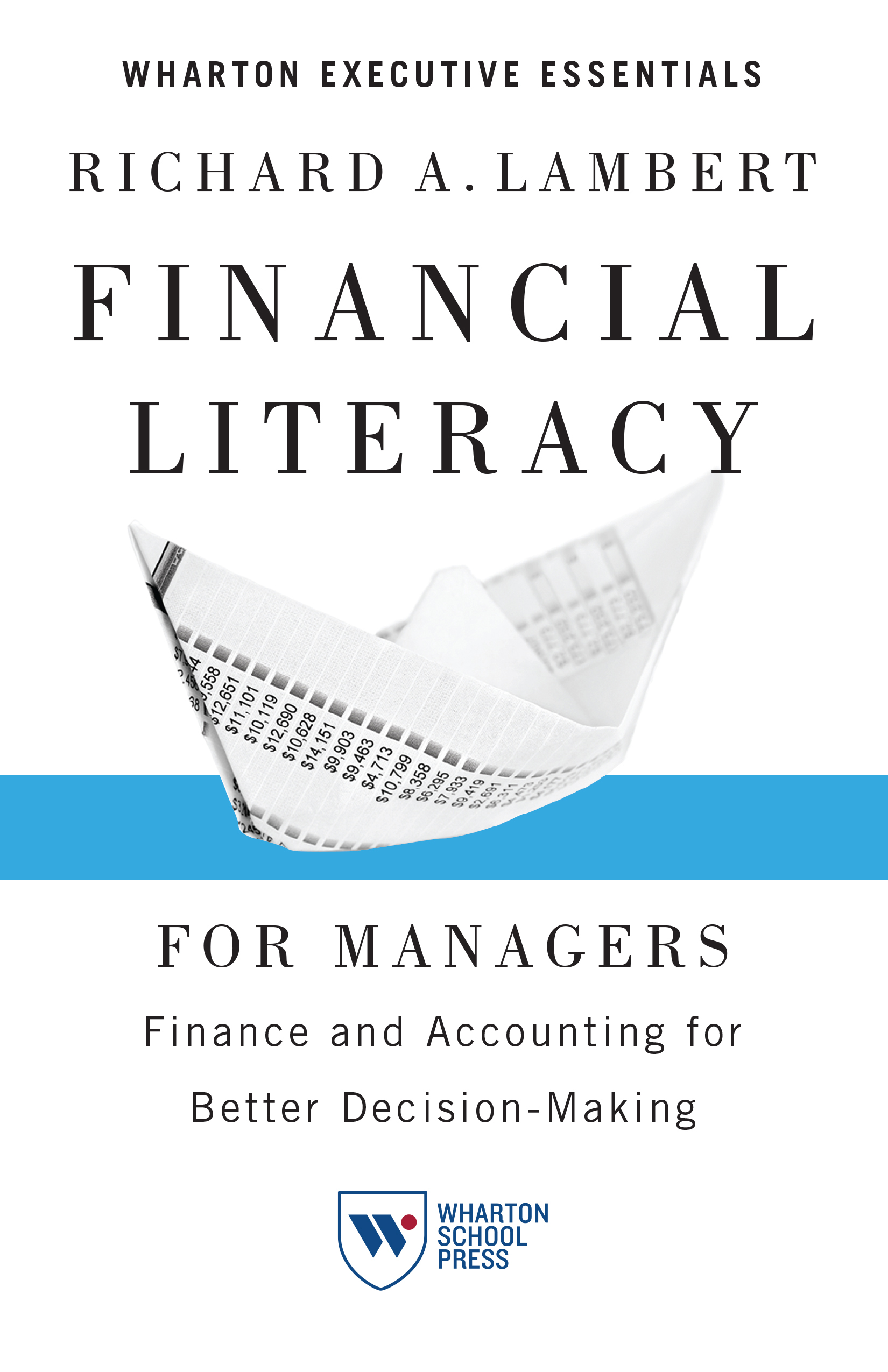
Financial Literacy for Managers The language of business In order to understand how your business is performing right now and to evaluate, assess, and devise new strategies to boost future performance, you need information. Financial statements are a critical source of the information you need. In direct and simple terms, Richard A. Lambert, Miller-Sherrerd Professor of Accounting at the Wharton School of the University of Pennsylvania, demystifies financial statements and concepts and shows you how you can apply this information to make better business decisions for long-term profit. You will learn to use and interpret financial data; find out what we can learn from Pepsi, Krispy Kreme, General Motors, and other companies; learn how to evaluate investment strategies; and apply your financial know-how to develop a coherent business strategy. BUSINESS & ECONOMICS,Accounting,Financial

Fundamentals Of International Financial Accounting And Reporting This unique book is not written from a specific national perspective, but adopts an international approach throughout. It treats the topic of International Financial Accounting and Reporting as a subject in its own right and not as an alternative or an extension to the existing domestic regulatory framework.The book begins with an introduction to accounting and financial reporting, followed by a description of the development of international standards and the present structure, role and operations of the International Accounting Standards Board.While a major part of the book is devoted to a discussion on individual IFRS (International Financial Reporting Standards), it also discusses income statements, balance sheets and cash flow statements. These financial statements are examined in the context of International Financial Reporting regulations and students are introduced to the main IFRS relating to those statements. Subsequent chapters examine individually, the more complex standards.A complimentary copy of the Instructor's Manual and the PowerPoint presentations of the text materials are available for all instructors who adopt this book as a course text. Please send your request to sales@wspc.com. BUSINESS & ECONOMICS,Accounting,Financial
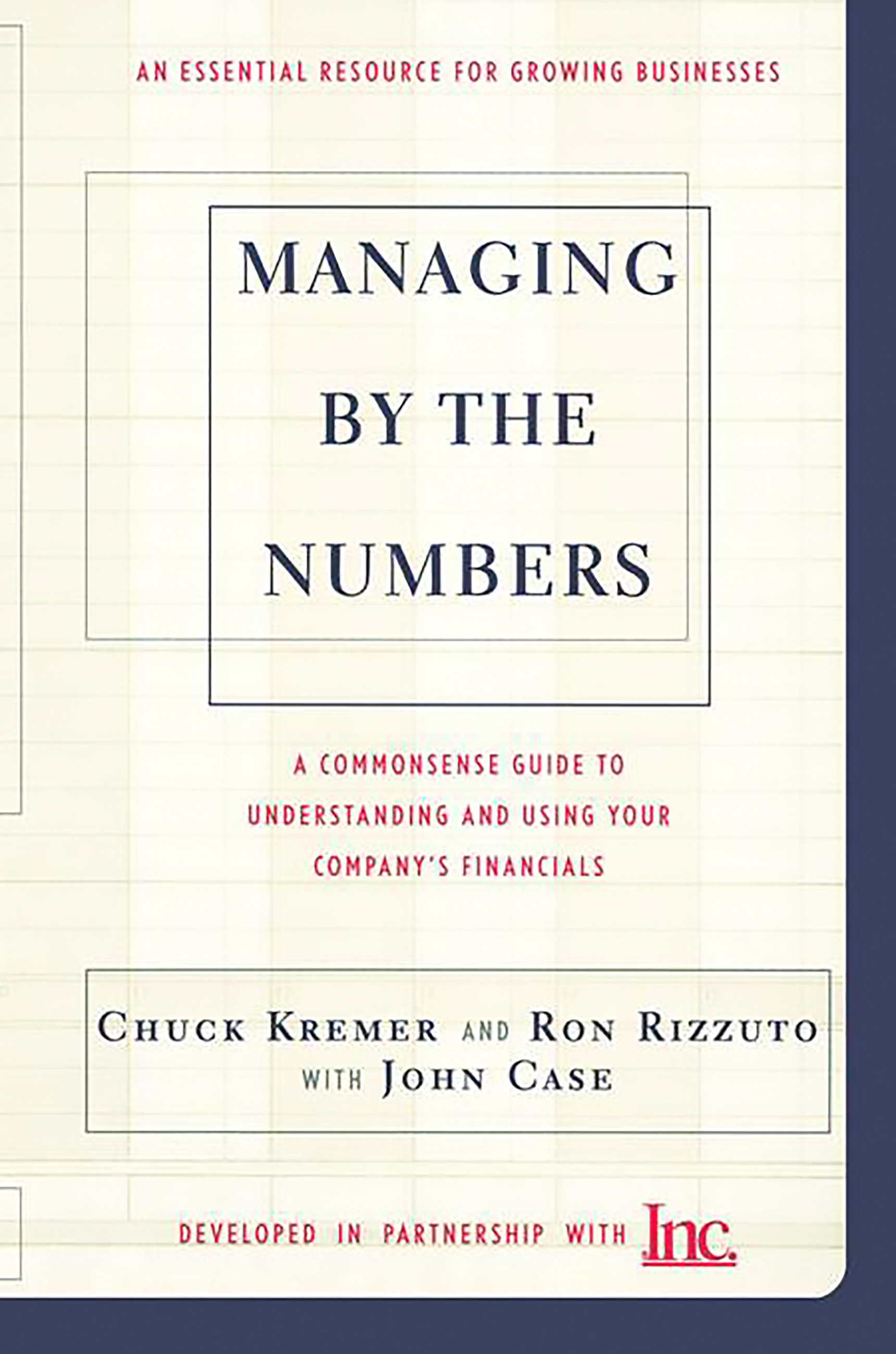
Managing By The Numbers The essential guide to understanding financial reports, for entrepreneurs, managers, and business owners Do you get complete financial reports for your business at least once a month? Do you understand what all those numbers mean? Do you use the information in those reports to help you make smart decisions about your business? If you answer "no" to any or all of these questions, then turn to Managing by the Numbers, a highly practical and accessible antidote to financial anxiety. Chuck Kremer, Ron Rizzuto, and John Case show you how to manage the three bottom lines of business financial performance -- net profit, operating cash flow, and return on assets -- and roll them into the "Financial Scoreboard" to see the big picture at a glance. Offering step-by-step examples and an extensive glossary of key terms and concepts, Managing by the Numbers is a commonsense guide to making those numbers work for you -- to monitor and measure performance, make smart decisions, and drive long-term growth. It is an essential resource for anyone eager to improve their mastery of the financial side of running a business. BUSINESS & ECONOMICS,Accounting,Financial
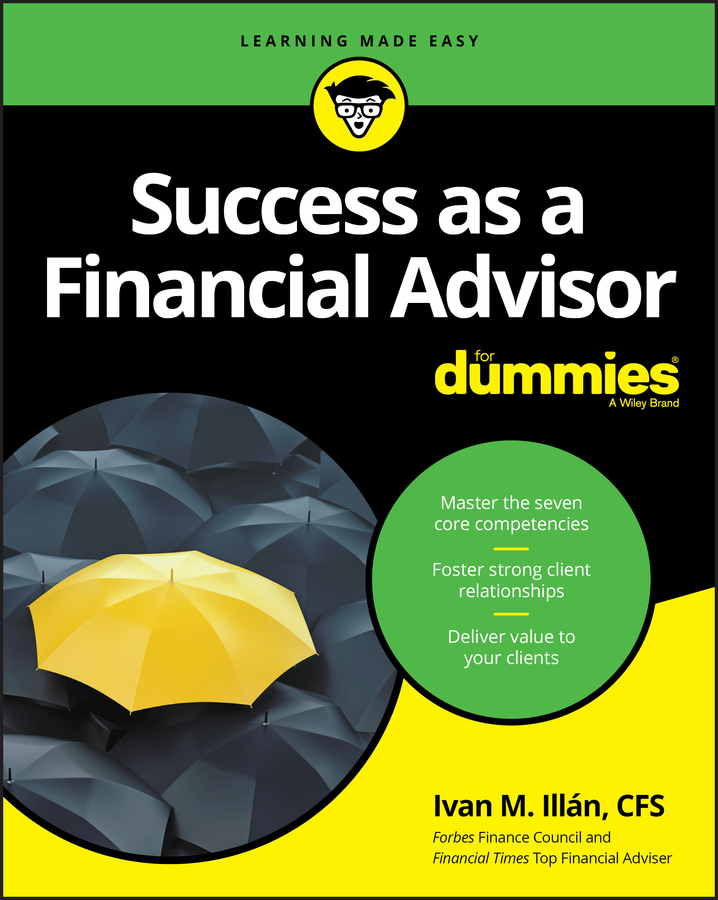
Success as a Financial Advisor For Dummies A must-have reference for financial advisors In step-by-step detail, Success as a Financial Advisor For Dummies covers how a current or would-be financial advisor can maximize their professional success through a series of behaviors, activities, and specific client-centric value propositions. In a time when federal regulators are changing the landscape on the standard of care that financial services clients should expect from their advisors, this book affords professionals insight on how they can be evolving their practices to align with the regulatory and technological trends currently underway. Inside, you’ll find out how a financial advisor can be a true fiduciary, how to compete against the growing field of robo-advisors, and how the passive investing trend is actually all about being an active investor. Additionally, you’ll discover time-tested advice on building and focusing on client relationships, having a top advisor mindset, and much more. Master the seven core competencies Attract and win new business Pick the right clients Benchmark your performance Start your own firm Brimming with practical expert advice, Success as a Financial Advisor For Dummies is a priceless success tool for any wannabe or experienced financial advisor. BUSINESS & ECONOMICS,Accounting,Financial
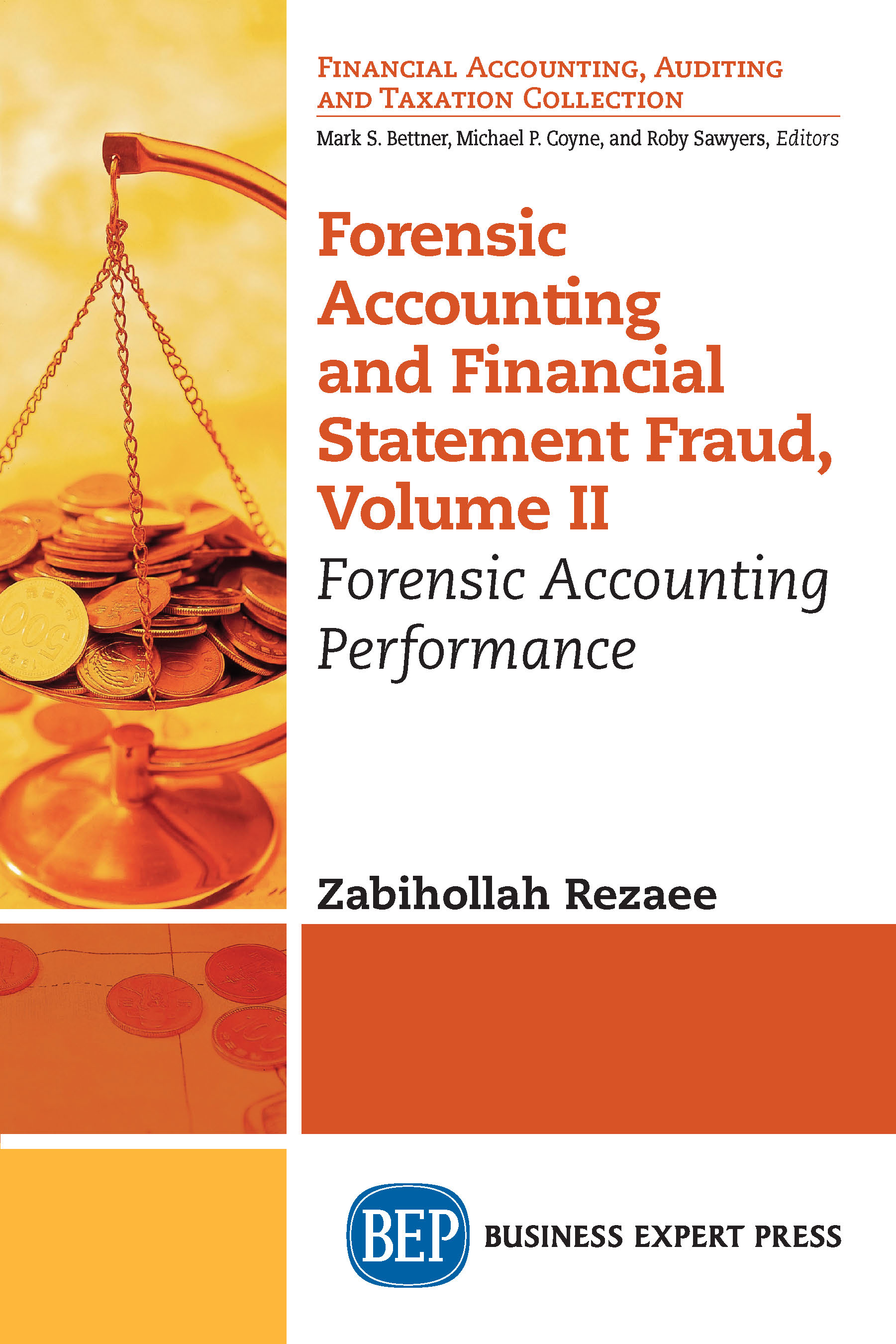
Forensic Accounting and Financial Statement Fraud, Volume II Forensic accounting is gaining considerable attention as a rewarding and exciting field of accounting. Forensic accountants perform both fraud and non-fraud services. The American Institute of Certified Public Accountants (AICPA) released its proposed new standards for its members who perform investigation and litigation forensic accounting services in December 2018. This second volume addresses fraud and non-fraud forensic accounting practice and performance. The author discusses forensic accounting roles and processes; forensic accounting techniques roles and responsibilities of corporate gatekeepers, including forensic accountants in creating a corporate culture of integrity and competency in preventing and discovering financial statement fraud. Also presented are challenges and opportunities in forensic accounting, and emerging issues in fraud investigation. BUSINESS & ECONOMICS,Accounting,Financial
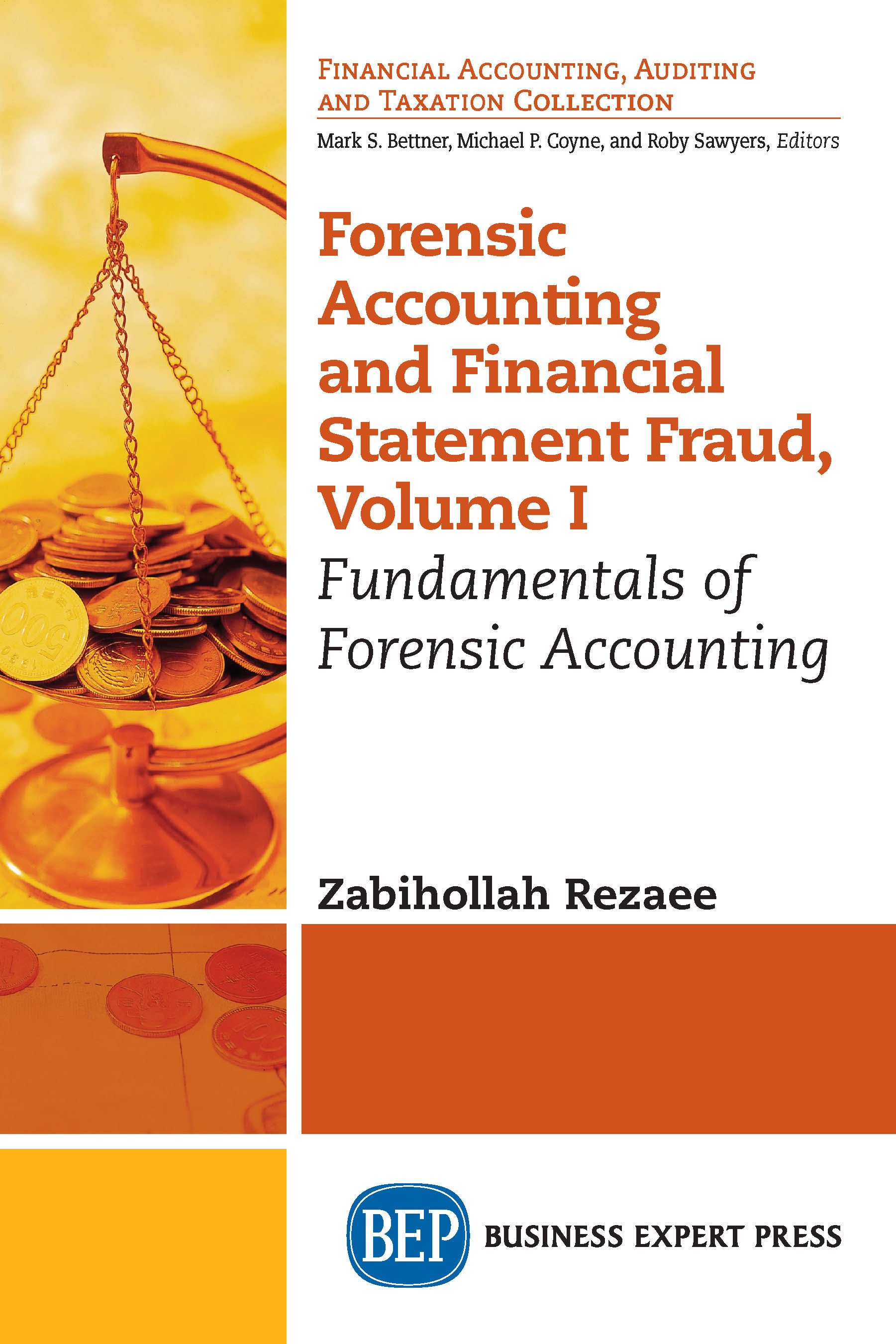
Forensic Accounting and Financial Statement Fraud, Volume I The existence and persistence of high profile alleged financial statement fraud (FSF) have negatively affected the safety and soundness of financial markets and investors confident in public financial information. Forensic accounting has advanced as an important and rewarding field of accounting to prevent, detect and correct FSF. There has been significant demand for and intertest in forensic accounting as well substantial growth in both investigation and litigation services. The first volume addresses the relevance and importance of forensic accounting and fraud examination as well as the framework and structure of forensic accounting practices. The author presents an introduction to forensic accounting and financial statement fraud examination and their relevance and importance to businesses, financial markets, economies and society. Also discussed is forensic accounting opportunities, skills, and services; forensic accounting profession; and professional responsibilities and codes of conduct for forensic accountants. Finally, forensic accounting best practices, education, and research are touched on. BUSINESS & ECONOMICS,Accounting,Financial
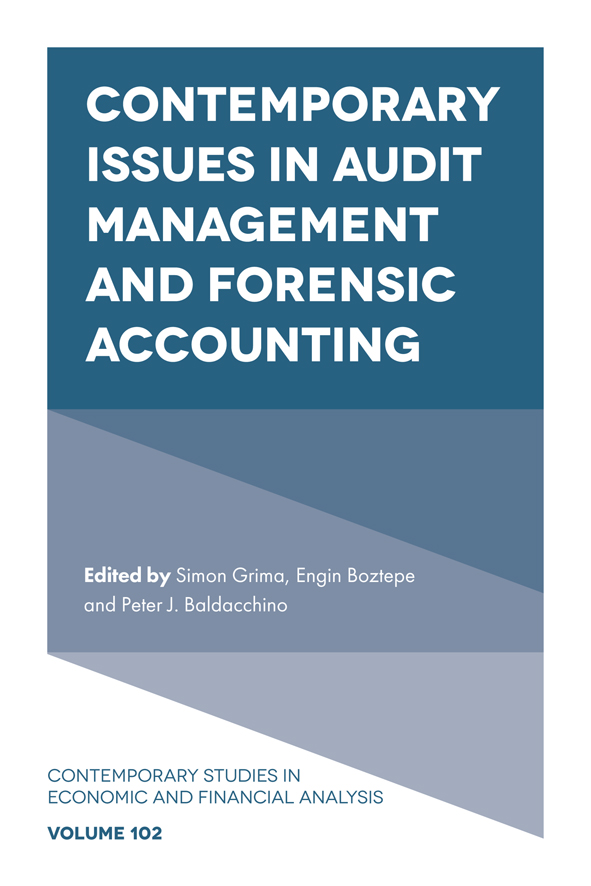
Contemporary Issues in Audit Management and Forensic Accounting In the 18 chapters in this volume of Contemporary Studies in Economic and Financial Analysis, expert contributors gather together to examine the extent and characteristics of forensic accounting, a field which has been practiced for many years, but is still not internationally regulated yet. BUSINESS & ECONOMICS,Accounting,Financial
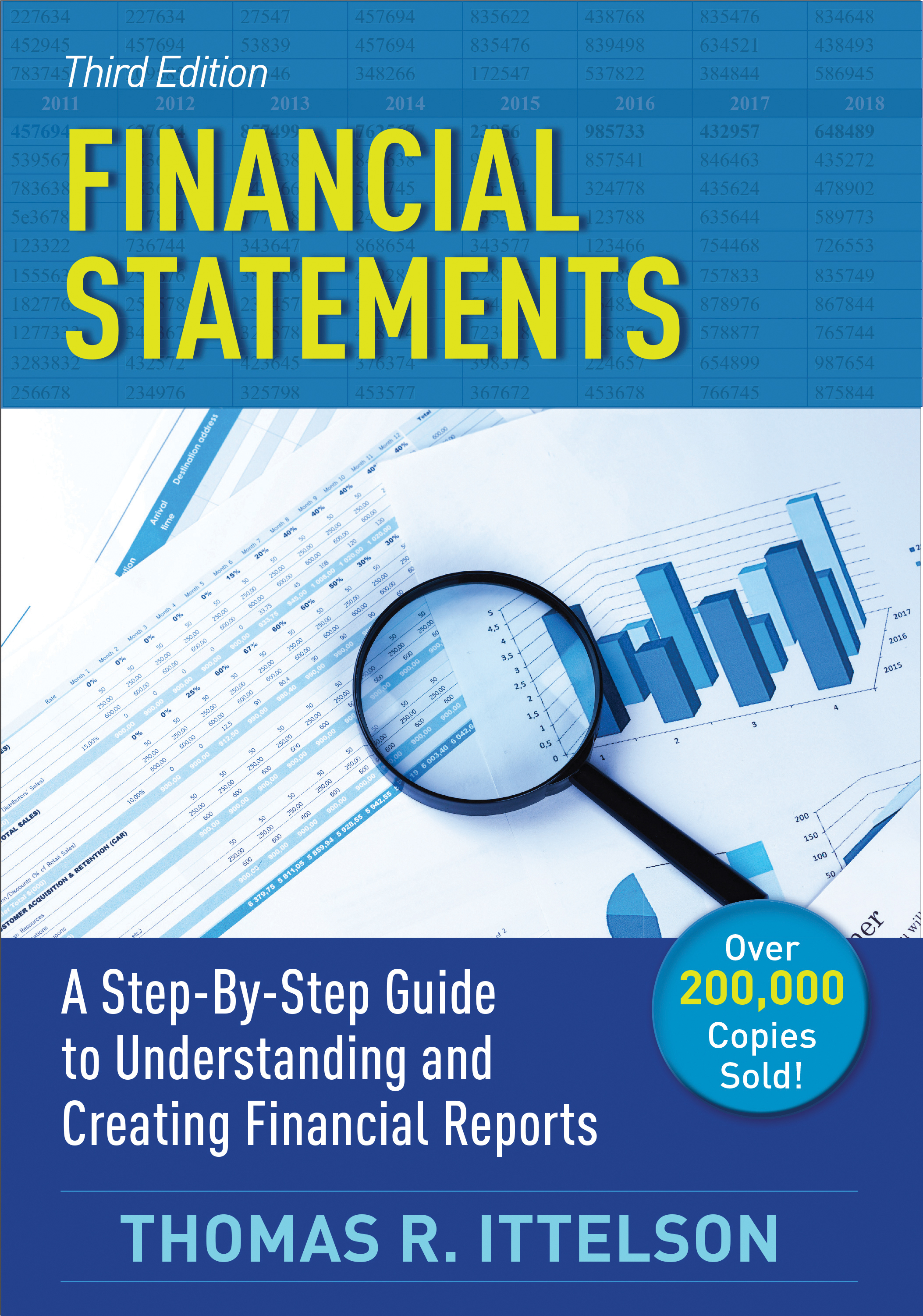
Financial Statements, Third Edition Over 200,000 copies sold! Thomas R. Ittelson’s master work for entrepreneurs, non-financial managers, business students, lawyers, lenders, and investors—the bestselling book of its kind, with over 200,000 copies in print—has gotten even better with this 20th anniversary edition. Ittelson is an expert at translating complicated financial topics in an accessible way for non-financial audiences. In this book, he empowers readers by clearly and simply demonstrating how the three major accounting statements interact to offer a snapshot of a company's financial health. This book teaches readers how to use specialized accounting vocabulary and makes accessible the structure and purpose of the three major numeric statements that describe a company’s financial condition. Each statement paints a different and essential picture—the “three-legged stool†of company reporting: The income statement shows the manufacturing (or service offerings) and selling actions of the company that result in profit or loss during a period. It gives a very important perspective on the company’s performance, its profitability. The cash flow statement details cash into and out of the company for a period. You need money to make money. Running out of cash is bad. Duh. The balance sheet records at the end of a period, an instant in time, what the company owns and what it owes, including the owners’ stake, called shareholders’ equity. With two new major topic sections (nonprofit organization accounting and pricing theory for profitability) and spot color reformatting to improve comprehension, this third edition of Financial Statements is simply the clearest and most comprehensive introduction to financial reporting available. No accounting background is required. BUSINESS & ECONOMICS,Accounting,Financial

Fores Trading Simplified The world of Forex Trading is often plagued with the idea that complex mathematical or pattern trading methods are required to be profitable. The author has traded profitably for years. He has used Fibonacci, Elliot Wave Theory, and other complex pattern trades. After over a decade of using these methods he has settled on trading about one hour a week using a simple method that anyone can learn in a matter of a few weeks or months of getting to know the market. You will be intrigued and excited by the prospects as you uncover how simple trading really can be. And, Tony gives you the specifics of how he trades so you can do the same.This is a book for beginners or veterans, but it lays out in very simple terms the world of Forex. For someone that has never traded, but id considering the idea.this is an ideal place to start. If you have traded for a while and may be a little frustrated, this just might be the "fix" you need to get your trading career on track. BUSINESS & ECONOMICS,Accounting,Financial

A Non-Technical Guide to International Accounting Business has become more international and more complex. Whether you are a manager, a student, or someone generally interested in corporate financial information, you want information and you want to understand that information. Companies in all countries are required to generate financial information, if for no other reason than to settle their tax obligations. If you are interested in the larger companies, such as those listed on a stock exchange, they must make financial information public, and the nature and type of that information is strictly regulated. Companies must comply with accounting standards. Many countries use the International Accounting Standards issued by the IFRS Foundation. This is a not-for-profit international organization that has developed a single set of high-quality global accounting standards. These standards can be complex, but this book explains clearly the main requirements. BUSINESS & ECONOMICS,Accounting,Financial
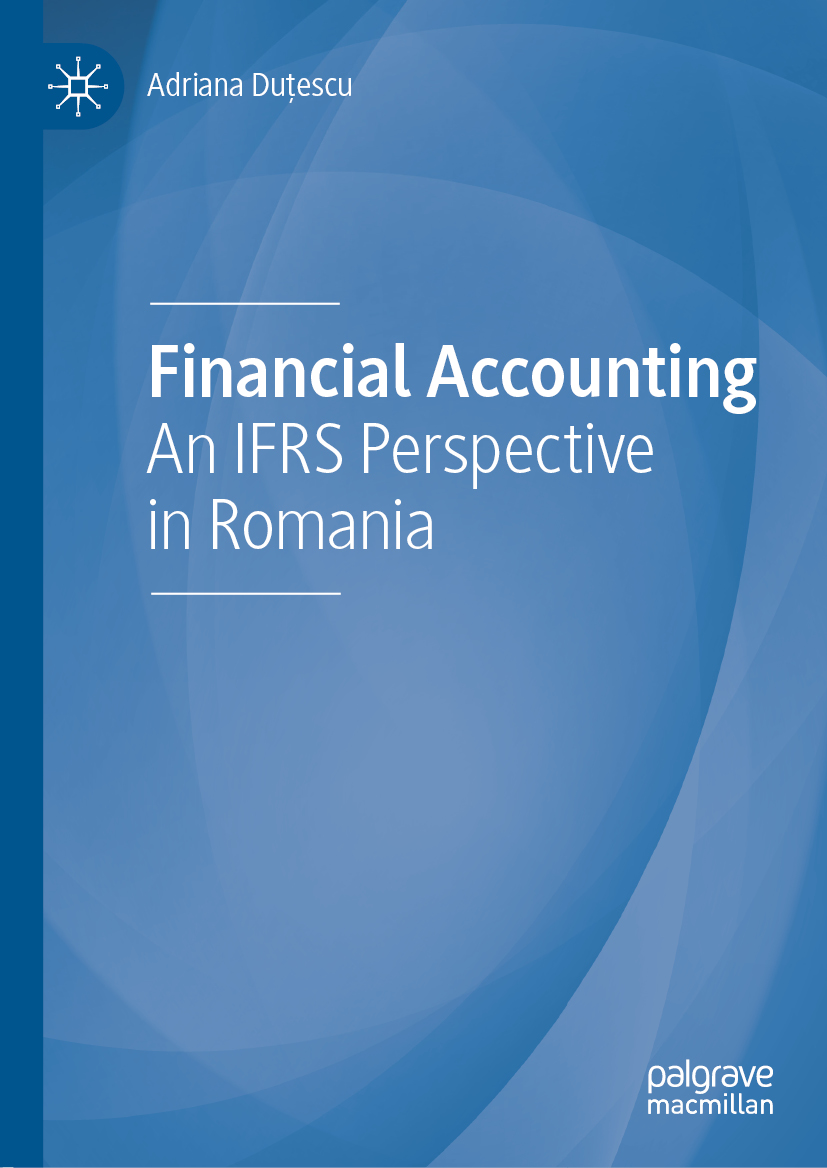
Financial Accounting This book covers the principles, concepts, techniques and practical tools of financial accounting in supporting overall business decisions. Using a comprehensive theoretical framework, this book is enhanced by practical examples, exercises, chapter summaries and complex cases in each of the eleven chapters. With the International Financial Reporting Standards (IFRS) and their specific Conceptual Framework as the baseline approach, this book also highlights Romanian regulation and practice specifically. Despite the globalisation efforts, this book demonstrates that there are still discrepancies and cultural challenges and will be of interest to students and academics of financial accounting. BUSINESS & ECONOMICS,Accounting,Financial
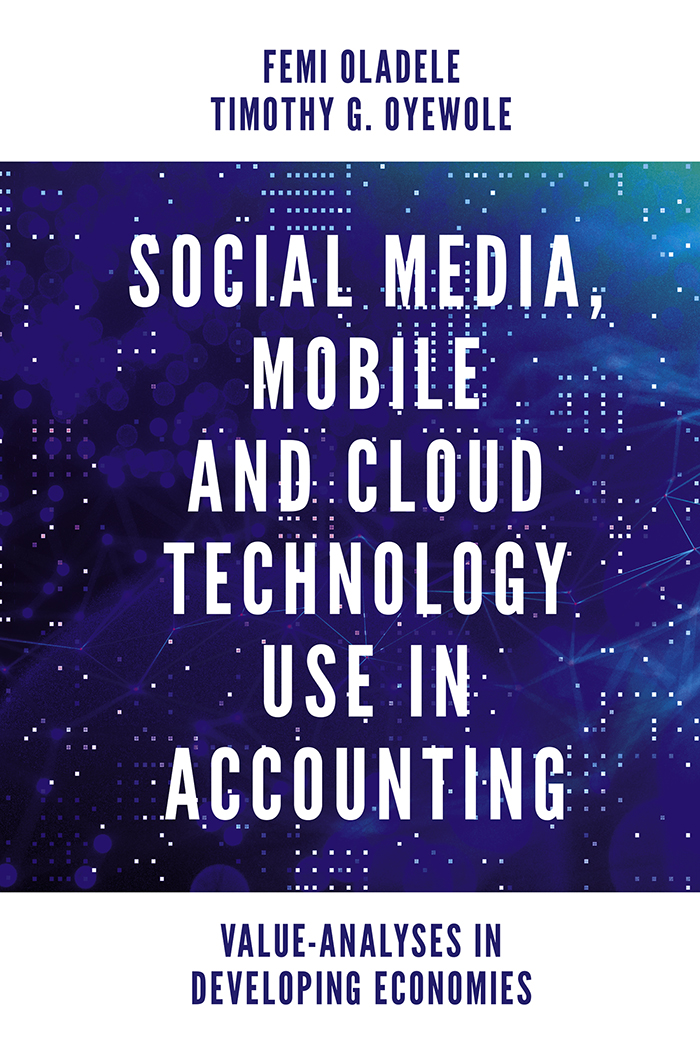
Social Media, Mobile and Cloud Technology Use in Accounting The rapidly evolving nature of emerging technologies, and the transformative and disruptive tendencies offered by these are reshaping professional activities, operations and functions as well as value creation. BUSINESS & ECONOMICS,Accounting,Financial
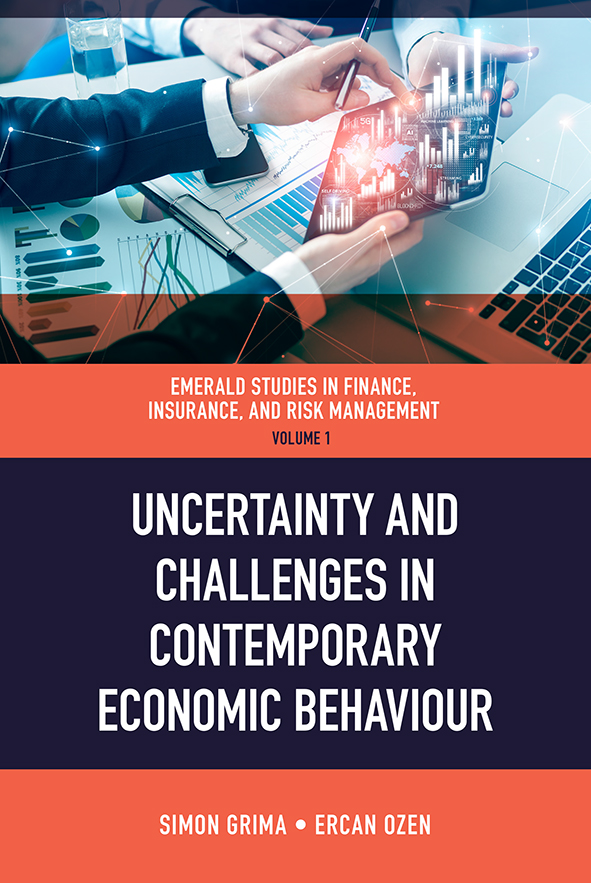
Uncertainty and Challenges in Contemporary Economic Behaviour Every day presents new challenges as the face of global economics changes. In this first book in the Emerald Studies in Finance, Insurance, and Risk Management, expert editors and contributors come together to discuss global response to new uncertainty and challenges. BUSINESS & ECONOMICS,Accounting,Financial
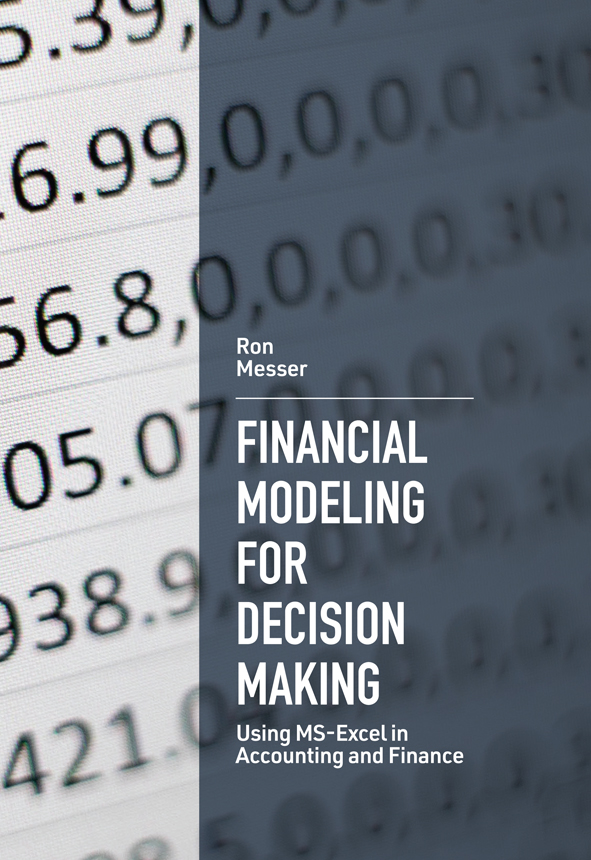
Financial Modeling for Decision Making This book provides accounting students in post-secondary institutions with an advanced level understanding of how to use MS-Excel to make business decisions. It reflects real-life applications of this important analytical tool, which has become the accepted industry standard for spreadsheet software. BUSINESS & ECONOMICS,Accounting,Financial
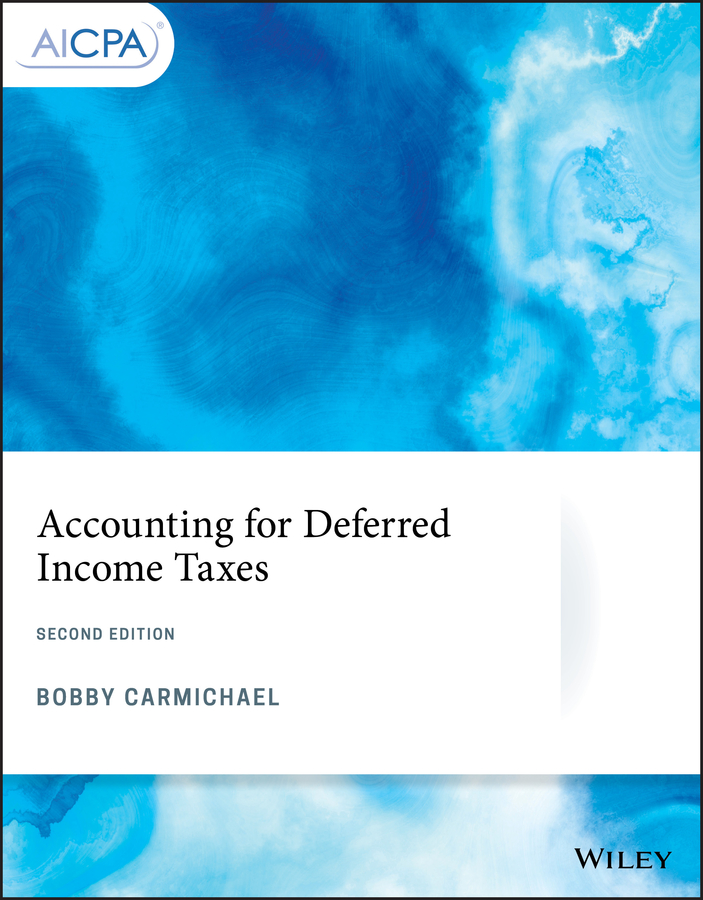
Accounting for Deferred Income Taxes A complicated accounting model, FASB ASC 740 has been around for a while. But the rules are becoming more challenging as businesses become more complex. This book incorporates the new tax rates and other impacts of the Tax Cuts and Jobs Act and will assist you in understanding FASB ASC 740, Income Taxes, and how it establishes guidelines for accounting for income taxes, including income tax expense, classification of deferred tax accounts, and related disclosures. Key topics include: Principles of FASB ASC 740 Income tax expense and deferred tax liabilities and assets Valuation allowances Proper documentation of deferred income taxes in the work papers Required disclosures within the financial statements BUSINESS & ECONOMICS,Accounting,Financial
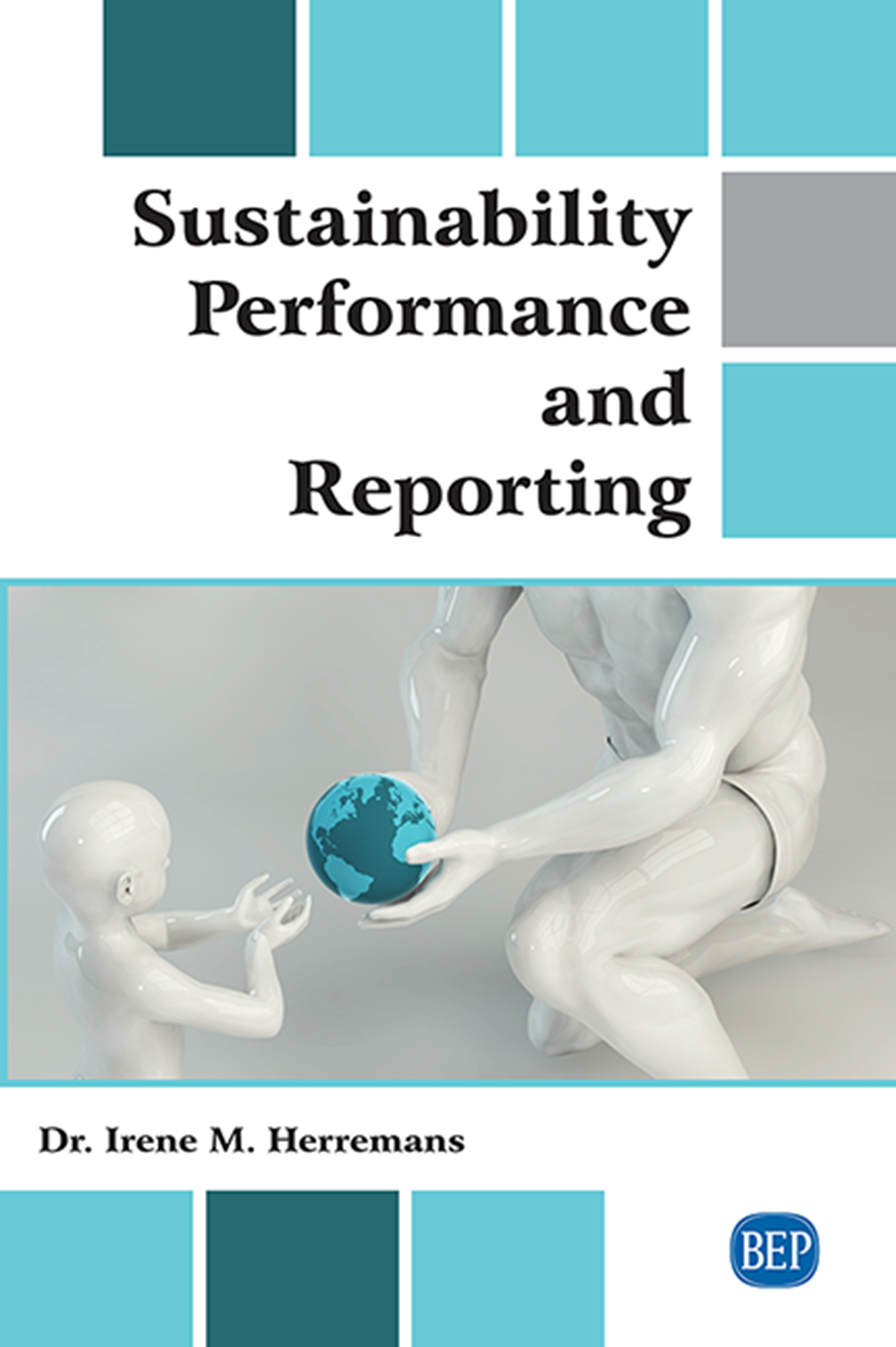
Sustainability Performance and Reporting This book provides a step-by-step approach for organizations to reap benefits from a more sustainable approach. As organizations tackle global challenges, the faces of our businesses and our economic system are changing to consider the interests of all stakeholders rather than just shareholders. This book provides a step-by-step approach for organizations to reap benefits from a more sustainable approach. It begins with a brief history of the concept of sustainability as it applies to both performance and reporting. Implementing sustainability in an organization begins with the development of policies which are consistent with the expectations of its stakeholders. An organization’s active participation in multi-stakeholder initiatives helps to align the policies with societal trends. Once the policies are developed, a management system is crucial to ensure congruence of policies with actual performance. Then, periodic reporting of performance based on well-recognized standards aids stakeholders in assessing an organization’s performance–reporting also helps stakeholders to determine if performance aligns with their expectations. Both internal and external assurances build stakeholder trust in the organization’s performance and reporting. Finally, the book concludes with a reflection on key messages and potential future actions for continuous improvement. BUSINESS & ECONOMICS,Accounting,Financial

Financial Statement Analysis This book presents financial statements as a set of dynamic instruments that can be used for accurate, relevant, and timely financial decisions. It focuses on the economic and financial conditions that cause statements to change and discover how businesses can manage liquidity, debt, and profitability. Plus, explore effect ratios, causal ratios, pro forma analysis, sustainable growth, and much more. Key topics covered include: valuation techniques, effect ratios, DuPont system for analyzing profitability, causal analysis. how to conduct a financial statement analysis, users of financial statements, forecasting sustainable growth, and bankruptcy prediction models. BUSINESS & ECONOMICS,Accounting,Financial

Accounting for Sustainability This book provides a broad overview of how sustainability reporting has grown, how it is used now and where it is heading. Daily, we read and hear in various media about concepts such as corporate social responsibility (CSR), sustainability reporting, sustainability accounting, environmental reports, corporate citizenship or environmental management systems. Accounting for Sustainability decodes this terminology by providing an accessible introduction to the topic that explores sustainability reporting from an internal and external perspective. It begins with an overview of how sustainability reporting has emerged and why it is important, before moving on to cover definitions of key terms and specific theories and frameworks. Subsequent chapters explore the role of financial management, sustainability standards, accounting communication and capital markets. With learning outcomes and study questions embedded in each chapter, this book will be of great interest to students of sustainability reporting and accounting, as well as practitioners taking related professional accreditations. BUSINESS & ECONOMICS,Accounting,Financial
compteur pour site
































